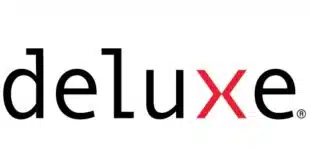On Nov. 20, 2023, Mastercard Inc. announced that its Chinese joint venture with Netsunion to process domestic payments had been approved by the People’s Bank of China and the National Administration of Financial Regulation. Was it a victory for, or a mockery of, free trade? If this landmark approval were real in letter and spirit, and had happened years earlier, it would have been fabulous news for Mastercard and for Chinese consumers, merchants, banks, and fintechs.
Greater competition forces multinational and domestic payment networks to continually up their game. Some countries’ payments markets are open and intensely competitive. In many countries, however, governments are putting a damper on payment-network competition, burdening foreign payment networks, and preferencing national champions.
Unfortunately, the global payment sector is increasingly plagued by raw protectionism in, and the politicization of, payment systems. China is guilty of both, in spades. While Mastercard has shown admirable persistence and patience trying to penetrate the Middle Kingdom, its efforts are unlikely to pay off.

A trip down memory lane provides perspective. In 2001, China made a World Trade Organization commitment to completely open up its domestic payments market by 2006. Beijing flagrantly flouted its WTO pledge. There still has not been a single domestic Mastercard or Visa transaction in China.
Even if one suspended disbelief and assumed China genuinely intended to open its payments market, three Sino-payment-network colossi—card monopoly China UnionPay (CUP) and mobile-payments phenoms and super apps Alipay and WeChat Pay— dominate the market today. They didn’t exist in 2001.
While Chinese banks issue CUP cards co-branded with Mastercard or Visa for international use, domestic payments are routed over CUP’s network. Mastercard’s acceptance in China is paltry compared with CUP’s, Alipay’s, and WeChat Pay’s. Even if Mastercard enjoyed acceptance parity, the largest Chinese issuers are state-owned banks for which political considerations are paramount. Private issuers, too, must kowtow to Beijing. Giving business to an American rather than Chinese payment network would be perilous.
In 2006, Washington wasn’t paying attention. And Visa, Mastercard, American Express, Discover, and PayPal weren’t complaining. None wanted to incur Beijing’s wrath. Each hoped playing nice would win them favored access. It didn’t pan out. In 2010, the U.S. brought a WTO complaint against China. In 2012, it substantially prevailed. China didn’t appeal.
Washington and the payments industry have sobered up. Harsh reality has disabused U.S. policymakers and captains of the payments industry of their wishful thinking that the Middle Kingdom would liberalize and view honoring its trade commitments as in its interest.
In 2018, the U.S. blocked Alipay’s attempt to acquire money-transfer network MoneyGram over national-security concerns.
An Oct. 25, 2023, letter sent by 11 Republican Senators to Treasury Secretary Yellen and U.S. Trade Representative Ambassador Tai underscored the dramatic change. The Senators contend China’s domestic payments market remains effectively closed to foreign networks and that Sino-payment systems such as CUP, Alipay, and WeChat Pay are instruments of the Chinese Communist Party.
CUP’s, Alipay’s, and WeChat’s U.S. presence is modest. CUP enjoys near-ubiquitous U.S. acceptance because of reciprocal acceptance with Discover. But many merchants are unaware they accept it, and The Bancorp is CUP’s only US issuer. Virtually all use of Chinese payment systems in America is by Chinese tourists and business travelers, or through Chinese buying from U.S. e-commerce sites.
By contrast, the U.S. payments market has been open, except for the Fed’s cash monopoly, and Washington doesn’t promote or advantage US-domiciled payment systems. To the contrary, the more it uses them as an instrument of foreign policy, and the more it cuts countries off from U.S.-domiciled payment systems such as Visa, Mastercard, American Express, Discover, PayPal, and US-bank-anchored Swift transactions, the greater the incentive in foreign domains to nurture national champions.
The motivation for some national payment-network champions is understandable.
In response to sanctions imposed after its first invasion of Ukraine, Russia’s central bank in 2015 launched its national card-network champion, Mir, and the National Card Payment System, which Mastercard and Visa were forced to use to process domestic payments.
Iran’s monopoly card network Shaparak debuted in 2011. While, because of sanctions, foreign payment networks don’t compete there, Iranian consumers, businesses, and banks would be better off if their domestic payment-network market was competitive.
India has imposed burdens on U.S. payment systems. It mandates in-country processing. Additionally, the National Payments Corporation of India, which heeds guidance from Delhi, will cap use of its instant-payments system, UPI, by each alternative payment system to 30% of the total, effective Dec. 31, 2024. This is intended to curb Google Pay’s and Walmart-backed PhonePe’s dominance. NPCI also runs India’s card network champion Rupay. Nevertheless, the market is open and competitive.
Notwithstanding its professed liberal principles, the European Union calls for “strategic autonomy” in payments, a euphemism for bald protectionism. The European Commission continues to try to weaken American Express, Mastercard, Visa, Apple Pay, Google Pay, and PayPal. Brussels rooted for putative EU payments champions such as the Euro Alliance of Payment Schemes and Monnet, which failed, and the European Payments Initiative, which is struggling. Unlike the CCP, however, it doesn’t enjoy plenary power to force use or block competitors.
Except where there are compelling national-security considerations, Washington should vigorously push on bilateral bases and through multinational organizations for open payments markets. And, it should avoid casually overusing payments sanctions to express displeasure.
Freedom worldwide for unfettered payment-network competition is desirable and would ensure maximum market dynamism, innovation, and value creation.
—Eric Grover is principal at Intrepid Ventures, Minden, Nev.





